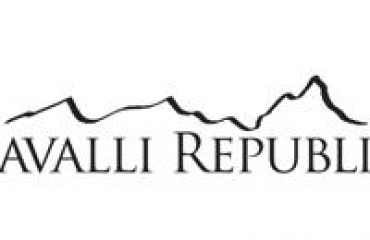What you need to know about the free at-home COVID tests promised by the Biden administration – PBS NewsHour
Subscribe to Here’s the Deal, our politics newsletter for analysis you won’t find anywhere else.
Thank you. Please check your inbox to confirm.
Watch our complete coverage
Darlene Superville, Associated Press Darlene Superville, Associated Press
Zeke Miller, Associated Press Zeke Miller, Associated Press
Leave your feedback
WASHINGTON (AP) — President Joe Biden announced last month that the federal government will buy half a billion COVID-19 rapid test kits and distribute them free to people to use at home. But despite high public demand for tests, it will still be several more weeks before these kits are available to be shipped, White House officials said.
Not yet. This week marked the close of an initial bidding period for test manufacturers to apply to the departments of Defense and Health and Human Services for contracts to make the tests. The first contract has already been signed, and additional contracts will be signed in the coming weeks, officials said. All 500 million kits will not arrive at the same time. They will be delivered in batches over months.
The federal government is expected to get delivery of the first batch of tests “over the next week or so,” according to White House COVID-19 coordinator Jeff Zients. Americans will start receiving them “in the coming weeks” he added.
You’ll go to a new government website to request a kit, but the site won’t be operating until after the first batch of test kits has been delivered to the government. “We’re obviously not going to put the website up until there are tests available,” White House press secretary Jen Psaki said last month.
The Postal Service will handle fulfillment and shipment of tests to Americans’ doorsteps, officials said.
It’s unclear. But Psaki noted that the Food and Drug Administration has approved several different brands of rapid home tests that are currently on the market. While they are packaged differently and may use slightly different procedures, officials said, their mechanisms of detection and effectiveness are generally the same.
To be determined. Officials are also working on policies for how frequently people can request a free test. That’s expected to come with a new focus on educating Americans about best practices for when they should take a test.
It represents an acknowledgement by the president that the administration needs to do more to increase access to COVID-19 testing, which is an important tool to help slow the spread of the coronavirus.
In cases where infected people show symptoms or not, testing is the only way to find out if they have the virus so they can avoid being out and about and potentially spreading disease.
READ MORE: As omicron continues to surge, families despair over return to remote learning
Demand for test kits soared as the holidays neared and people grew eager to test themselves and their families before traveling and as the easily transmissible omicron variant spread rapidly in just a few weeks to become dominant strain in the U.S.
Biden’s promise of 500 million test kits is in addition to the administration’s earlier pledge to send 50 million rapid tests to community health centers across the country.
The purchase will be paid for with money from the $1.9 trillion coronavirus relief bill Biden signed into law in March, the White House said. The exact cost will be known soon.
Starting Jan. 15, private insurers will be required to cover the cost of at-home testing, the same way they cover the cost of PCR lab tests. People will have the option of buying tests at a store or online, then seeking reimbursement from their health insurance provider. Those with public health insurance through Medicare or Medicaid, or without insurance, will be directed to the forthcoming website to order tests or to community health centers in their area offering free testing.
White House officials say the government tests are coming from new manufacturing capacity and should not interfere with existing supplies that drugstores, health clinics and state governments are relying on.
“These are additional tests,” Zients said, made possible by the fact that the FDA has authorized many new ones in the last few months. “So, there’s a lot more capacity for rapid tests.”
Left: A person uses a nasal swab to provide a sample to be tested for the coronavirus disease (COVID-19) as cases surge across the state, in New Orleans, Louisiana, U.S., August 6, 2021. Photo by Callaghan O’Hare/REUTERS
By Jeffrey Collins, Associated Press
By Associated Press
By Zeke Miller, Associated Press
Darlene Superville, Associated Press Darlene Superville, Associated Press
Zeke Miller, Associated Press Zeke Miller, Associated Press
Support Provided By: Learn more
Subscribe to Here’s the Deal, our politics newsletter for analysis you won’t find anywhere else.
Thank you. Please check your inbox to confirm.
Additional Support Provided By:
Nation Jan 06
© 1996 – 2022 NewsHour Productions LLC. All Rights Reserved.
Sections
About
Stay Connected
Subscribe to ‘Here’s the Deal,’ our politics newsletter
Thank you. Please check your inbox to confirm.
Learn more about Friends of the NewsHour.
Support for NewsHour Provided By



